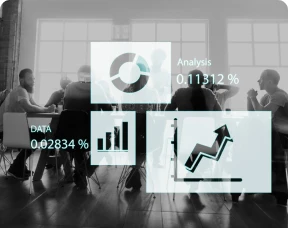
People and organizations at every corner of society have embraced the idea that anyone can cultivate an audience by providing consistent and relatable content on social media and then leverage that audience’s engagement as evidence of “influence” for social and economic rewards. The industry continues to grow at startling rates (it was recently valued at around $16.5 billion) and greatly affects the way information, goods, and services are conceived of, marketed, and sold. Influencers’ work has become critical to the commercial sphere and in shaping public discourse, but in its current form, the industry makes exploitation—both by and of influencers, brands, and social media companies—too easy.
Power has shifted away from individuals and toward major social media companies. Under the banner of “helping creators,” giants like Meta buy out or rip off smaller businesses’ tools and services, derailing competitors’ prospects and bolstering users’ reliance on their own apps. Further, the total lack of transparency about how each company’s algorithms work causes many influencers and brands to operate under constant threat of their visibility—and thus, income and potential—tanking without warning. Then, when it inevitably does, they must waste time and resources trying to figure out why. There is no customer service line or HR rep, just thousands of people working in opacity.

0 Comments